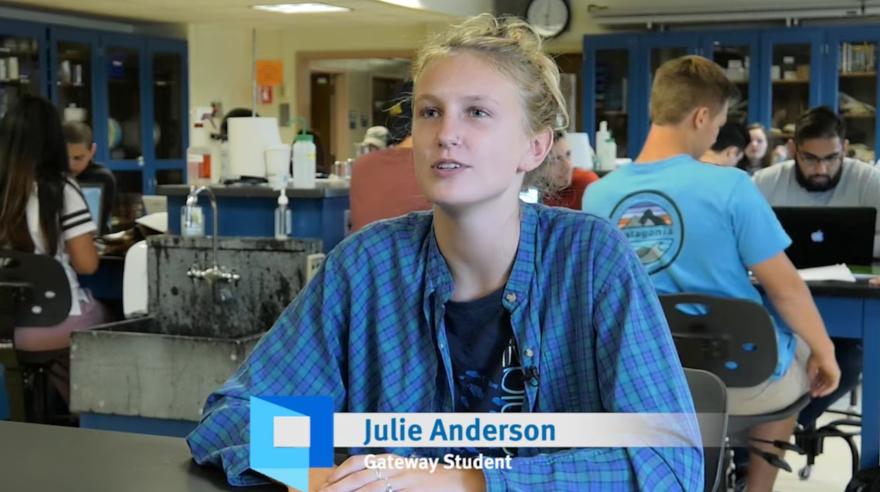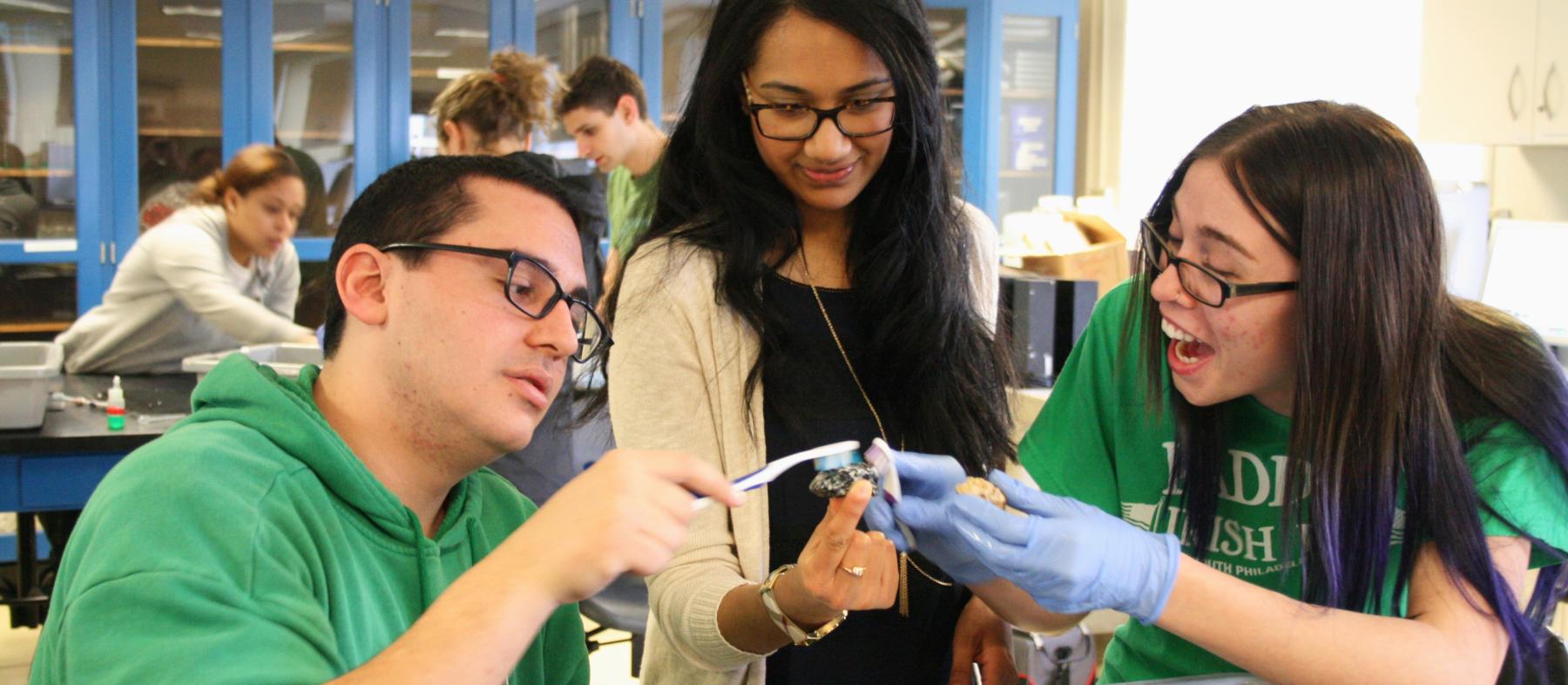Program Goals:
The Liberal Arts - Environmental Science Option provides students with a strong academic foundation in the environmental, natural, and physical sciences. Graduates are prepared to transfer to a bachelor’s degree program in the environmental field.
Student Learning Outcomes:
Upon completion of the program, graduates will be able to:
- Evaluate human impact on the environment and be able to identify and explain local and global environmental issues to a diverse audience.
- Employ the scientific method to investigate scientific principles, analyze and interpret data, and solve complex problems.
- Demonstrate proper use of basic laboratory equipment, adhering to laboratory safety protocols, and use of computer technology for data analysis.
- Apply mathematical reasoning to explore environmental phenomenon, including data analysis using statistics, and the correct composition and interpretation of graphs.
- Demonstrate clear and effective communication skills, including verbal, written, graphic, and numerical, with emphasis on the presentation of experimental results.
- Identify reliable sources of information for use in the formation and support of evidence-based arguments.
- Utilize the broad-based liberal arts curriculum to recognize the value of multiple perspectives needed to participate in a global society.
Admissions Process:
Admissions inquiries should be directed to admissions@qcc.mass.edu. Prospective students may apply to the program of their choice by following the enrollment steps at www.QCC.edu/enrollment-steps.
Program Admissions Requirements:
Students should note that some first semester courses carry minimum prerequisites. Refer to the program grid.
- High School Diploma or GED/HiSET.
CORI, SORI, Finger Printing & Drug Testing:
Criminal Offender Record Information (CORI) and Sex Offender Registry Information (SORI) checks are not required. Fingerprinting and drug testing are not required.
Additional Cost:
See the Program Fees page.
Technical Performance Standards:
See the Technical Performance Standards page. (Note: Not all programs have technical performance standards).
Credit for Prior Learning:
Credit for Prior Learning (CPL) allows students to use skills they already have towards a college degree or certificate. Work, life, volunteer and military experience may be translated into credit, allowing students to take fewer classes and earn their degree faster. CPL eliminates redundancies for students who have already earned credentials or mastered skills required for their program of study. Email experience@qcc.mass.edu for more information and eligibility.
Career Outlook:
Please consult the Massachusetts Career Information System at https://masscis.intocareers.org/ or the Occupational Outlook Handbook at www.bls.gov/ooh/ for specific occupational information. The CIP code for this program is 03.0104.
Transfer Articulations & Opportunities:
Prospective students may learn more about transfer articulation agreements at www.QCC.edu/agreements. More information regarding transfer opportunities is available at www.QCC.edu/transfer.
- For the purpose of the articulation agreement with UMass Lowell, students must receive a minimum grade of “C-” in all courses within the program for transferability to UMass Lowell.


